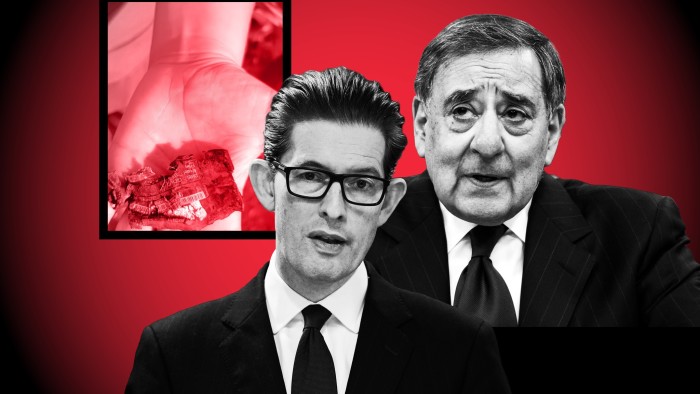Dr. Manmohan Singh was a great economist, and an unusual one. He was widely respected for his understanding of economic science. Barack Obama once said that when Dr. Manmohan Singh speaks the world’s leaders listen. Nevertheless, he spoke very little, was humble, and listened a lot.
When he became Prime Minister for his second term in 2009, he unexpectedly invited me to serve as a Member of the Planning Commission which he chaired. I thanked him for the opportunity to serve him and the nation. I wondered though if he had made a mistake. I pointed out that I was not an economist, nor an academic, and had no experience of working in government — qualifications which seemed necessary for a country’s apex policy-making body.
On the contrary that was why he wanted me, he said. The country already had eminent economists in the Planning Commission and other advisory roles. Moreover, he himself was considered a good economist, he admitted shyly. Yet the country’s economic policies were failing to create enough employment though its GDP was increasing fast.
He pointed to a book in his office and said “I know you well”. It was my book, Transforming Capitalism: Business Leadership to Improve the World for Everyone, the first copy of which I had the honour of giving him in the opening ceremony of CII’s annual meeting in Vigyan Bhavan in May 2008.
Hero for industry
Dr. Singh was a hero for Indian business leaders because he had liberated them from government controls in 1991. In my book I had reproduced the speech he had given to CII at its annual meeting in May 2007 on “Inclusive Growth—Challenges for Corporate India”.
Dr. Singh had said: “In a modern, democratic society, business must realise its wider social responsibility. The time has come for the better-off sections of our society to understand the need to make our growth process more inclusive; to eschew conspicuous consumption; to save more and waste less; to care for those less privileged and less well off; to be role models of probity, moderation, and charity.”
He offered business leaders a Ten-Point Social Charter. In the ten points were calls to industry to be pro-active in offering employment to the less privileged, to invest in the welfare of workers, and invest in people and their skills; and to resist excessive remuneration to promoters and senior executives and discourage conspicuous consumption. The speech did not go down well with the business audience. They feared Dr. Singh was turning the country back to socialism from which he had liberated them!
Looking ahead
Like a great leader, Dr. Singh could see ahead of others. He anticipated the social and economic problems that would arise if the country continued with policies for ease of doing business and making profits which did not improve the ease of earning and living of common citizens at the same time. Dr. Singh told me that liberal economists claimed to have found the formula for increasing GDP faster, but they did not know how to make growth inclusive at the same time. He also believed that reforms of the ways in which policies are being made were overdue.
The Planning Commission’s way of top-down planning by experts was not serving the country well. Demands for reforming, even abolishing, the Planning Commission had increased from many sections of society: Congress’ political opponents, the business community, and even civil society.
Planners and experts were not listening to the common people. Policymaking had to become more participative, the Prime Minister said. He expected me, an outsider to formal economics and government, to cajole the Planning Commission to reform itself before it was too late.
Alas, it did not happen. Mr. Modi’s first, bold, institutional reform on becoming Prime Minister of India, having defeated an out-of-touch, elitist Congress party in 2014, was to abolish the Commission.
Dr. Singh’s leadership style was out of tune with current populist politics. He did not hanker for power. He dressed simply and not to impress. He listened deeply and did not speak too much. He was loved by people of all religions: Muslims, Christians, Sikhs, and Hindus; and he respected all.
Tragically, the ruling, Hindu majoritarian, political dispensation, seems even more committed to economic theories which Dr. Manmohan Singh had realised were not serving the country well, but was unable to change because vested interests resisted, as they always will.
No one can resist an idea whose time has come, Dr. Singh had said, quoting Victor Hugo, when he announced the liberalisation of the Indian economy in 1991. It had become the fashion then with the fall of the Soviet Union. That idea too is passing.
Need for new economics
Dr. Singh had anticipated the need for a new economics. India was not served well by the socialism that was, nor is it being served well by the capitalism that is. “A society framed as to throw a great part of the increased income into the class least likely to consume it is not a good society”, Dr. Singh said to CII when he presented his ten-point Social Charter.
The benefits of GDP growth are not trickling down. Inequalities are increasing. Incomes at the bottom are not keeping up with inflation. Moreover, the natural environment is being destroyed with more man-made infrastructure.
Dr. Manmohan Singh’s wisdom will be missed, in a country sadly being ‘broken into fragments by narrow domestic walls’, and where too many ‘minds are in fear and heads not held high’. Our economic policies must change to achieve India’s ‘tryst with destiny’ of poorna swaraj — political, social, and economic freedom for all Indians, whatever their religions, castes, and ethnicities.
Though humble in demeanor and not inclined to chest-thumping, Dr. Singh was a proud Indian. At the end of his speech to the captains of Indian industry in 2008, he said, “Never forget that we are what we are because of what our Motherland has given us. The time has come for us to ask ourselves what we can give her back. India has made us. We must make Bharat”.
The writer is a former Member of the Planning Commission and author of several books, the latest is “Shaping the Future: A Guide for System Leaders”(Through The Billion Press)







Leave a Comment